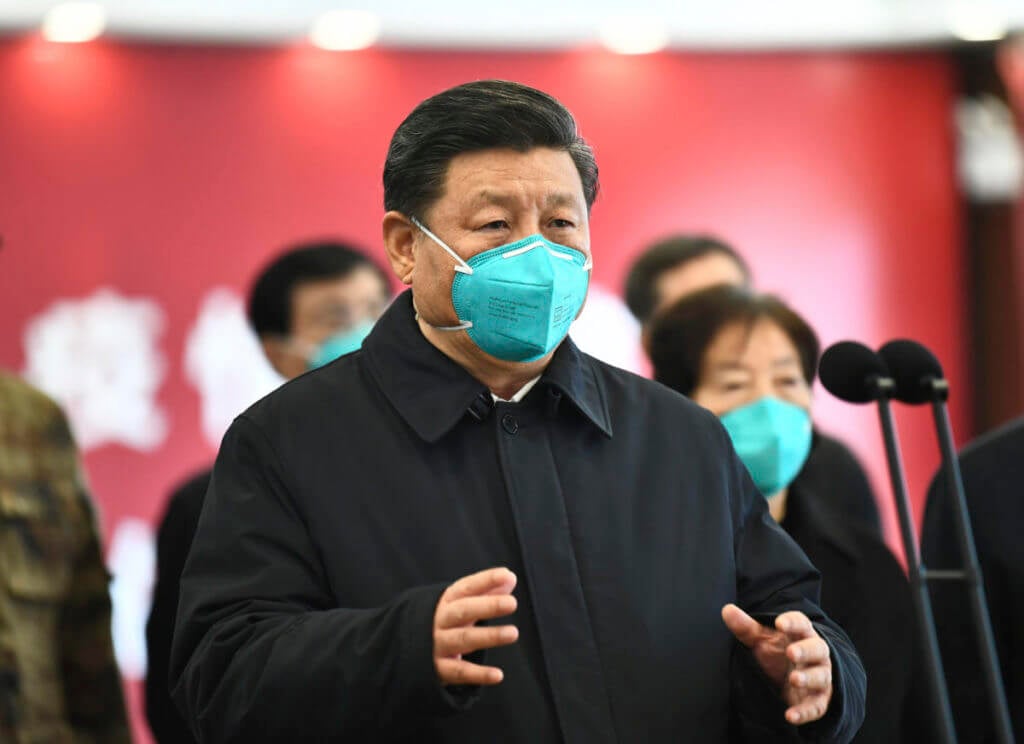New Study Proves Everything Trump Said About Coronavirus is a Lie

A new study suggests it would be a grave mistake for President Trump to re-open the U.S. economy in a few weeks' time as it threatens a new wave of Covid-19 infections. | Image: MANDEL NGAN / AFP
- Scientific data show longer lockdowns can successfully delay a second wave of cases and prevent healthcare systems from collapsing.
- Donald Trump seems blissfully unaware of the consequences of disregarding public health advice.
- Though the U.S. is one of the hardest hit by coronavirus, Trump is unwilling to issue a nation-wide lockdown.
Donald Trump has been keen to get the U.S. economy back on track by lifting coronavirus lockdown measures implemented across several states ahead of schedule.
Earlier this week, Trump vowed that America would open for business by Easter. But research published in the Lancet Public Health Journal says the opposite is true.
Unsurprisingly, Donald Trump’s desire to reopen the country is driven by financial gain and his reelection campaign, not science.
Long Lockdowns are Vital
Ignoring the fact that the U.S. is likely to be ravaged by an enormous number of critical coronavirus cases come Easter, the study says there are future benefits to maintaining a lengthy lockdown .
The study used mathematical modeling to determine that had China’s Wuhan lifted restrictions in March, a second wave of infections would have hit the area harder with a peak of new cases in August. Keeping schools and businesses shut until April, a ten-week lockdown likely bought Wuhan two additional months to prepare its healthcare system for a second wave of cases.

The study also suggested that the longer lockdown period would also soften the intensity of the potential second wave of coronavirus cases.
How Wuhan’s Lockdown Compares
Dr. Tim Colburn from the University College London urged policymakers to use the study as a tool to make lockdown decisions:
The study by Kiesha Prem and colleagues in The Lancet Public Health is crucial for policy makers everywhere, as it indicates the effects of extending or relaxing physical distancing control measures on the coronavirus disease 2019 (COVID-19) outbreak in Wuhan, China.
It remains to be seen whether world leaders drive their decisions using scientific data. In the U.S., where lax lockdown measures and unrestricted travel are still the norm, Donald Trump has said he won’t issue a nation-wide lockdown . He’s also said he plans to lift existing lockdown measures in under three weeks.

Not all nations are taking such a cavalier approach though. Boris Johnson has asked the U.K.’s most vulnerable citizens to shelter at home for 12 weeks while the wider population observes a three-week lockdown.
Johnson said after three weeks, the government will re-asses the need for additional distancing measures.

Italians have been under lockdown for two weeks already with the government tightening restrictions on public movement with each passing day.
In Spain, where the number of coronavirus deaths has surpassed that of China, the government has extended lockdown measures by 15 days, bringing the total time up to four weeks.
France has taken on similar measures with its citizens having been confined to their homes since Mar. 16. This week India issued a lockdown order for its 1.3 billion inhabitants with the restrictions coming into force on Wednesday.
Western World Isn’t Ready for Coronavirus
The data from Wuhan are encouraging in the fight against coronavirus, as they suggests social distancing is effective in flattening the curve and giving the medical community time to prepare. But study co-author Dr. Yan Liu from London School of Hygiene & Tropical Medicine cautioned that the results will likely vary:
Our results won’t look exactly the same in another country, because the population structure and the way people mix will be different.
The results in China can’t be compared like for like across the rest of the world because of the way Chinese society differs from western populations. Most importantly, Beijing has the power to force its citizens into quarantine—that same government control would face strong resistance in places like America and the U.K.

That’s led to many people disregarding social distancing measures despite government mandates and the threat of fines. That means China’s success in flattening the curve and delaying a second outbreak may not be able to be replicated.
Still, Liu points out that the study offers one clear takeaway: social distancing is vital in battling the coronavirus pandemic.
We think one thing probably applies everywhere: physical distancing measures are very useful, and we need to carefully adjust their lifting to avoid subsequent waves of infection when workers and school children return to their normal routine. If those waves come too quickly, that could overwhelm health systems.
Disclaimer: The opinions expressed in this article do not necessarily reflect the views of CCN.com.